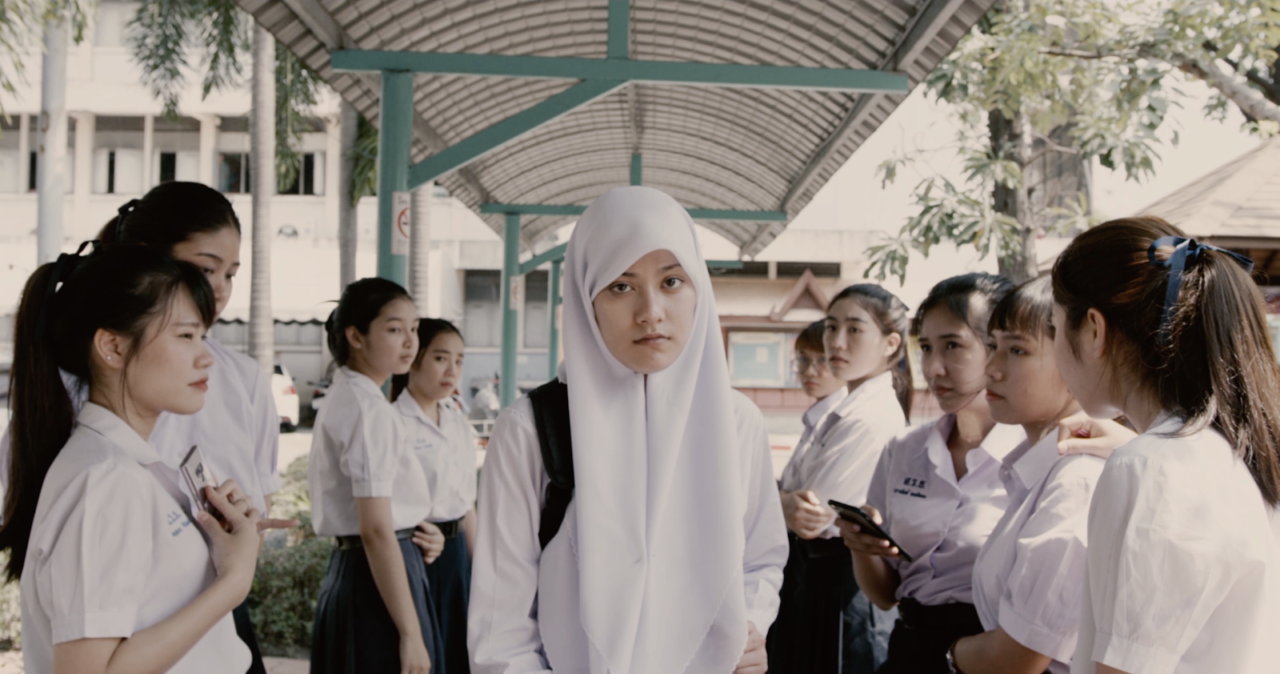Subverting Culture Without Tokenism: The Significance of Meat
With our appetite for content increasing exponentially, the need for originality in entertainment has also skyrocketed. We are bored and nothing surprises us. If a new gangster film looks like Goodfellas and doesn’t accomplish anything different, it’s just another Scorsese rip off. If a comedy isn’t witty or meta, it’s “trash”. This need to subvert expectations has both positives and negatives. It drives storytelling to more interesting frontiers. Unfortunately, this often accompanied by being incendiary for the sake of getting people to watch a film.
In I’m Not Your F***ing Stereotype, a Muslim girl in Thailand wants to change her identity after facing discrimination in school and social media. It is not her religious identity that troubles her. It is, instead, the perception that she is only her religion and, by extension, a “terrorist”. These problems escalate when she moves to a predominantly Buddhist part of Thailand, and is singled out as a Muslim and bullied by a gang of girls. The film features the use of voice-over prominently, with Maryam Muslimeen, the main character, guiding us through her experiences and how they lead to her want to change every feature listed on her identity card. Throughout the film, we view Maryam largely through iris shots and spotlighted/personalised glimpses of her. It is supplemented with a tone similar to the walk-and-talk that filmmakers like Scorsese and Sorkin are famous for. It is this quality that differentiates it from a run-of-the-mill coming of age story.

I’m Not Your F***ing Stereotype, dir. Hesome Chemamah, 2019: As a Muslim girl from Southern Thailand, Maryam falls prey to racism in school and spirals into an identity crisis.
While one might think that Hesome Chemamah runs the risk of trivialising Maryam’s struggle, the seriousness of the film’s subject matter does come across. Early in the film, Maryam says that she is a Muslim born on 11/09/2001. A horrendously uncomfortable detail is held in contrast to an unexpectedly casual delivery. As the film rises to a climax of her conflict with her classmates and mother, the tone, previously used to ease the narrative heft, is abandoned and we are made to empathise with Maryam. Even throughout all the trepidation and conflict, Maryam still wants to be pious and committed to her identity. She is willing to live with her day to day struggles, cope with the insensitivity of her classmates, and fight for her pride. Her mother’s questioning of her loyalty is the last straw, and the film ends with the unsuccessful attempt to rid herself of her identity, both in name and in life. It underscores the power of identity in society today, and how it is so rooted in our perceptions that no amount of document doctoring can erase it. Without this impactful narrative, this film could easily be a few punchlines about terrorism and 9/11, with images of a Muslim girl getting pork thrown at her prompting her to attack her classmate. Stereotype could be pivotal with a wider reach. It has emotional appeal, and feels like a culturally important film that people can identify with and rally behind.
Also wearing the label “off-kilter” on its sleeve is Piece of Meat. In this film, a prostitute portrayed by a lamb cutlet goes about her day. I’d consider it a dark comedy; Piece of Meat reflects a hopeless cycle of poverty faced by some in Singapore. The film utilises visual gags that satirizes focal points in Singaporean culture. By literally objectifying society, as with the titular character, it evokes the pointlessness of materialism. At one point, a durian is not let on a bus because it was different and well, a durian. Later, Durian and Meat, both siblings, chop up and eat their parent (a potato) upon their death. Speaking to larger themes like inhumanity, class discrimination, cannibalistic ‘filial piety’, and suicide, Piece of Meat touches on taboo issues rarely spoken about in a fairly-conservative country like Singapore.
Animation as a medium is a smart choice, given the popularity of animated TV shows with adult themes pushing boundaries of poignancy, like Rick and Morty or Bojack Horseman. Vibrant visual humour with a consistent irreverent tone, balances what audiences feel without overburdening them with themes of loneliness and fears of irrelevance. A Rick and Morty episode where Rick turns himself into a similarly absurd arbitrary object (Pickle Rick!) is a deep dive into his psyche and search for meaning. Isolated, he is weathered down by the pointlessness of everything he’s done. It is the same numbness that drives both Meat and Durian to their painful double suicide. No accomplishment would lead to any better a life. Animation frames and highlights the absurdity of our ritualistic life. Piece of Meat’s biggest achievement though, is satire without gimmick.
There could be some value in mitigating the dreary, off putting reality with a quirky, humorous tone. However, a thin line separates trivialising issues and lampooning it effectively. Now, your content not only has to be novel but retain quality. Audiences need more meat on the bone.
– V Dhanraj


